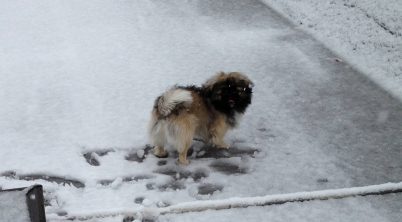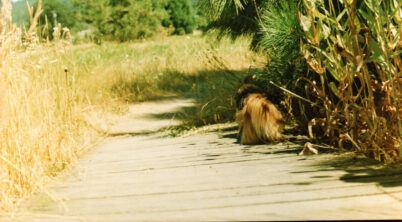The Pekingese, a toy breed with an unmistakable appearance characterized by a lion-like mane and a compact, sturdy body, is treasured for its charming character and regal demeanor. Originating from China, this breed has been a favored companion since its introduction to the Western world in the mid-19th century. As with many purebred dogs, potential owners often inquire about the life expectancy of a Pekingese, keen to understand the commitment they are undertaking.
On average, a Pekingese lives between 12 to 15 years. Several factors contribute to this lifespan, including genetic predispositions, the level of care they receive, and overall health conditions common to the breed. Responsible ownership, regular veterinary care, and a suitable lifestyle can have a positive impact on their longevity. Primarily bred as companion dogs, Pekingeses enjoy a lifestyle that includes moderate exercise and plenty of interaction with their human counterparts.
Despite being relatively healthy, Pekingeses can be predisposed to certain health conditions that may affect their life expectancy. These can include respiratory issues due to their brachycephalic faces, joint problems such as patellar luxation, and obesity, which can exacerbate other health concerns. Awareness and proactive management of these health issues are essential for maximizing the life span of a Pekingese, balancing their care to support a long, fulfilling life as a cherished member of the family.
Table of Contents
Understanding Pekingese Lifespan Factors
The Pekingese breed’s life expectancy is influenced by various factors, with genetics and lifestyle choices playing significant roles. Understanding these contributors can guide Pekingese owners in promoting a healthy and potentially longer life for their pets.
Genetic Influence and Common Health Conditions
Genetically, Pekingese dogs may be predisposed to certain health conditions that can impact their lifespan. Examples include:
- Patellar Luxation: A common hereditary condition where the kneecap dislocates.
- Heart Problems: These canines may inherit heart issues, requiring veterinary monitoring.
- Brachycephalic Airway Syndrome: Due to their flat faces and short nasal passages, Pekingese are specifically vulnerable to respiratory issues.
- Cancer: As with many breeds, cancer remains a health risk that can affect longevity.
Owners should be vigilant for symptoms of these conditions and engage in proactive healthcare measures.
Impact of Diet and Nutrition
Pekingese dogs thrive on a balanced diet rich in essential nutrients. Key dietary guidelines include:
- High-quality Protein: Aids in tissue repair and maintenance.
- Fats: Essential for energy and absorbing specific vitamins.
- Carbohydrates: Provide energy and help prevent obesity, which is crucial as Pekingese are prone to weight gain.
- Vitamins and Minerals: Support overall health and bolster the immune system.
A well-planned diet can contribute to disease prevention, especially for breed-related health issues.
Exercise and Physical Health
Regular exercise tailored to the Pekingese’s unique physical structure is crucial for maintaining health and extending lifespan. Their exercise regimen should reflect their:
- Exercise Requirements: Moderate, given their short legs and potential joint issues.
- Need for Regular Exercise: To mitigate obesity and maintain cardiovascular health.
Structured physical activities not only meet their needs but also help to avoid exacerbating inherent health problems such as joint issues due to their stature.
Daily Care and Preventative Measures
Proper daily care and preventative measures are essential for maintaining the health and extending the life expectancy of a Pekingese. They require specific grooming practices, regular veterinary care, and an environment that caters to their physical and emotional well-being.
Grooming and Dental Care
Regular grooming keeps a Pekingese’s long coat free from mats and tangles, which can cause stress and skin issues. Daily brushing is recommended to remove debris and loose fur, maintaining the coat’s luster.
- Bathing: Once a month with a gentle dog shampoo
- Nail Clipping: As needed, usually every 1-2 months
- Ear Cleaning: Check and clean weekly to prevent infections
Dental care is paramount as Pekingese are prone to dental problems like tooth decay and gum disease. Owners should brush their dog’s teeth several times a week.
- Brushing Teeth: At least 3 times per week with canine toothpaste
- Dental Check-Ups: Annually by a professional
Veterinary Check-Ups and Vaccinations
Regular veterinary check-ups facilitate early detection of health concerns and ensure the Pekingese is up-to-date on vaccinations, which prevent various infectious diseases.
- Check-Ups: Every 6-12 months
- Vaccinations: As per veterinarian schedule
Owners should discuss neutering or spaying with their vet, as these procedures can prevent certain health issues and may contribute to a longer lifespan.
Creating a Supportive Environment
A Pekingese thrives in an environment that is safe and provides ample mental stimulation. Reducing stress is crucial for their well-being.
- Bedding: Soft and supportive to prevent calluses
- Peaceful Spaces: Areas where they can retreat and relax away from noise and chaos
- Toys: Provide a variety of toys to keep them engaged
Consistent love and attention ensure a Pekingese feels secure, further promoting their mental and physical health.
Understanding Breed-Specific Concerns
Pekingese dogs possess distinctive physiological traits and genetic predispositions that potentially impact their health and longevity. Recognizing breed-specific concerns is crucial for maintaining their well-being and preventing common causes of death.
Respiratory and Eye Conditions
Brachycephalic Syndrome: Pekingese dogs fall into the brachycephalic category due to their short nasal structures, which may lead to respiratory issues. These complications include breathing problems due to obstructed airways, which can cause stress and overheating. It is essential for Pekingese owners to monitor for signs of respiratory distress, especially during exercise or hot weather.
Eye Problems: These dogs are also at risk for various eye problems, including dry eye—medically termed keratoconjunctivitis sicca. This condition involves insufficient tear production, which can lead to discomfort and even vision loss if untreated. Owners should watch for signs of eye irritation or changes in vision and consult a veterinarian for regular eye examinations.
Monitoring for Mobility and Joint Health
Joint Issues: As with many small breeds, Pekingese can suffer from joint issues such as patellar luxation, where the kneecap dislocates, and arthritis, which often develops with age. Monitoring their mobility and weight can help reduce the onset and severity of these conditions.
Arthritis: Maintaining a healthy weight and providing a well-balanced diet with appropriate exercise can support joint health and may prevent the development of arthritis—a common ailment in older dogs that can significantly impact their quality of life.
Awareness of Pekingese Temperament
Personality: Pekingese are known for their regal and somewhat stubborn character, which can impact their social interactions and response to stress. A solid understanding of the breed’s temperament is vital to provide a supportive and stress-free environment.
Social Exposure: It is essential for owners to acclimate Pekingese dogs to various situations progressively, as their temperament can make them less adaptable to new environments or social settings. Creating positive encounters can minimize potential issues linked to stress and anxiety, contributing to their overall health.
* Banner by Helmuts Rudzītis, cropped | Some rights reserved








